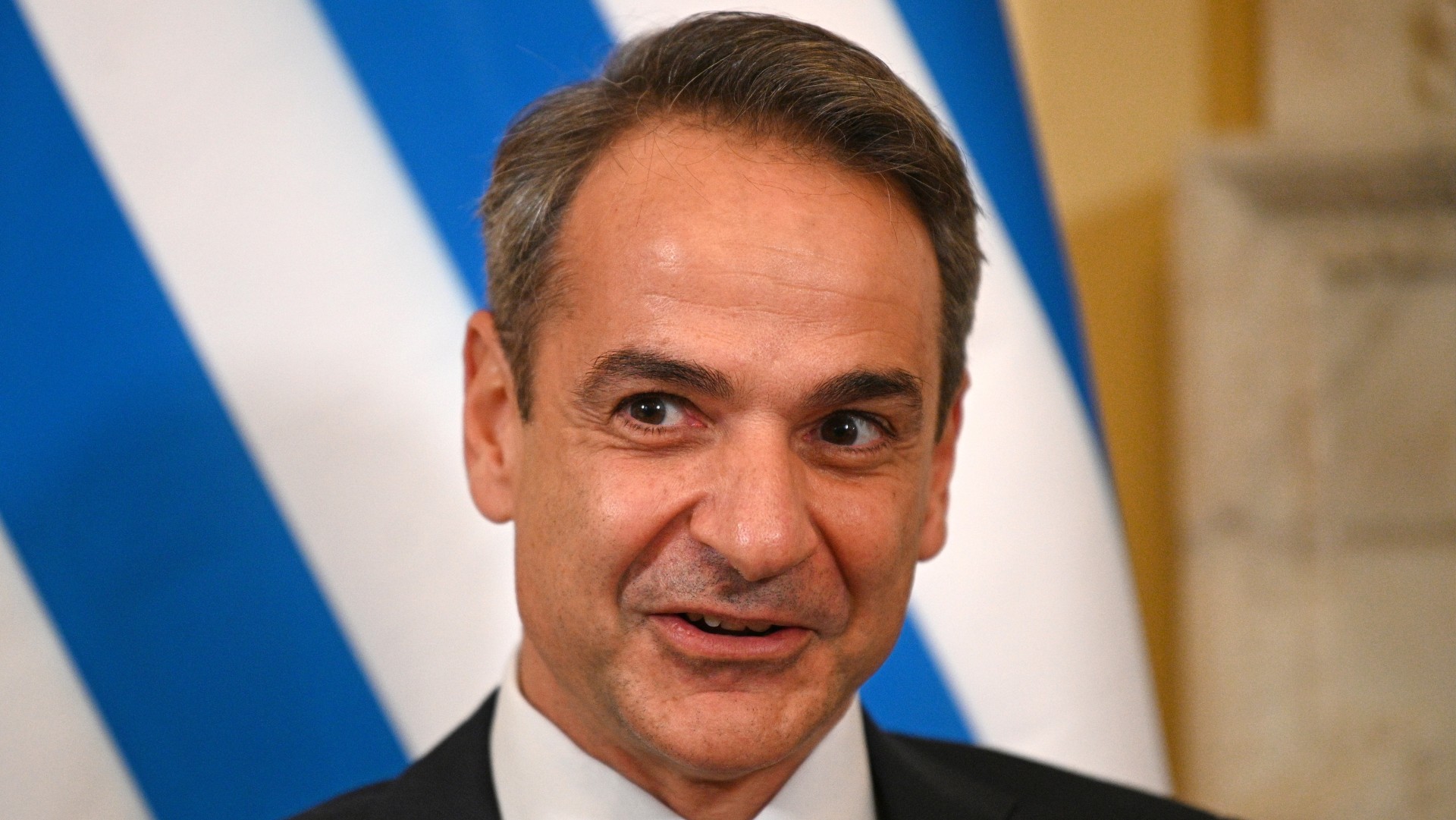Unvaccinated Greeks facing £85 monthly fine
Prime minister insists the levy for unjabbed over-60s is ‘health fee’ rather than ‘punishment’

A free daily email with the biggest news stories of the day – and the best features from TheWeek.com
You are now subscribed
Your newsletter sign-up was successful
Covid-19 vaccinations are to be made mandatory for all Greek citizens aged over 60 – and those who refuse will be fined €100 euros (£85) for every month that they go unjabbed, the government has warned.
Prime Minister Kyriakos Mitsotakis told a cabinet meeting yesterday that the levies, to be imposed by the tax authorities, will be used to help fund “Greek hospitals fighting the pandemic” as the new Omicron variant spreads, reported Bloomsberg.
“It is not a punishment,” said the PM. “I would say it is a health fee.”
The Week
Escape your echo chamber. Get the facts behind the news, plus analysis from multiple perspectives.

Sign up for The Week's Free Newsletters
From our morning news briefing to a weekly Good News Newsletter, get the best of The Week delivered directly to your inbox.
From our morning news briefing to a weekly Good News Newsletter, get the best of The Week delivered directly to your inbox.
Opposition politicians have criticised the planned fines, which kick in from 16 January. Alexis Tsipras, leader of the left-wing populist Syriza party, said the government’s management of the pandemic “lacks planning and strategy” and was “sloppy”, reported Athens-based newspaper Ekathimerini.
During a meeting with the National Federation of Public Hospital Staff, Tsipras accused Mitsotakis of being “a vaccination saboteur”, predicting that “instead of expanding vaccination rates in the population as everyone hoped, we will have a wave of reaction that will not help anyone”.
Older citizens should be encouraged, “even with financial incentives”, to get Covid jabs, said Tsipras, and convinced “of the value of vaccination to save their lives”, rather than taking “half their pension” in fines.
But Greek leader Mitsotakis insisted that making vaccines mandatory, while likely to be unpopular, “will save lives”.
A free daily email with the biggest news stories of the day – and the best features from TheWeek.com
Latest tracking from John Hopkins University showed that as of the end of November, just under 62% of the country’s 11m-strong population was fully vaccinated against the coronavirus. However, latest data also shows that “more than 520,000 people over 60 are yet to get the jab”, said the BBC.
Mitsotakis told cabinet members that the vaccination ratio among over-60s was around 83%, compared with Portugal’s 98%. Yet people in this age group should be among the first to be jabbed, he argued, because they were also among the most likely to wait too long to go to hospital when infected, lowering their chances of survival and putting further strain on the healthcare system.
“Experts estimate that the importance of the vaccine in a 70-year-old person is equivalent to 34 vaccinations of younger ones in terms of public health,” the PM said.
The first cases of the Omicron variant in Greece were detected on Monday. As of today, the country had logged almost 939,000 Covid infections and more than 18,000 related deaths since the start of the pandemic.
Although a string of other countries have made vaccines mandatory for health workers and other high-risk workers, Greece will become the first in the EU to target a specific age group when the fines system comes into effect next month.
-
 The ‘ravenous’ demand for Cornish minerals
The ‘ravenous’ demand for Cornish mineralsUnder the Radar Growing need for critical minerals to power tech has intensified ‘appetite’ for lithium, which could be a ‘huge boon’ for local economy
-
 Why are election experts taking Trump’s midterm threats seriously?
Why are election experts taking Trump’s midterm threats seriously?IN THE SPOTLIGHT As the president muses about polling place deployments and a centralized electoral system aimed at one-party control, lawmakers are taking this administration at its word
-
 ‘Restaurateurs have become millionaires’
‘Restaurateurs have become millionaires’Instant Opinion Opinion, comment and editorials of the day
-
 Epstein files topple law CEO, roil UK government
Epstein files topple law CEO, roil UK governmentSpeed Read Peter Mandelson, Britain’s former ambassador to the US, is caught up in the scandal
-
 Iran and US prepare to meet after skirmishes
Iran and US prepare to meet after skirmishesSpeed Read The incident comes amid heightened tensions in the Middle East
-
 Israel retrieves final hostage’s body from Gaza
Israel retrieves final hostage’s body from GazaSpeed Read The 24-year-old police officer was killed during the initial Hamas attack
-
 China’s Xi targets top general in growing purge
China’s Xi targets top general in growing purgeSpeed Read Zhang Youxia is being investigated over ‘grave violations’ of the law
-
 Panama and Canada are negotiating over a crucial copper mine
Panama and Canada are negotiating over a crucial copper mineIn the Spotlight Panama is set to make a final decision on the mine this summer
-
 Why Greenland’s natural resources are nearly impossible to mine
Why Greenland’s natural resources are nearly impossible to mineThe Explainer The country’s natural landscape makes the task extremely difficult
-
 Iran cuts internet as protests escalate
Iran cuts internet as protests escalateSpeed Reada Government buildings across the country have been set on fire
-
 US nabs ‘shadow’ tanker claimed by Russia
US nabs ‘shadow’ tanker claimed by RussiaSpeed Read The ship was one of two vessels seized by the US military